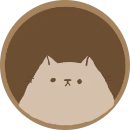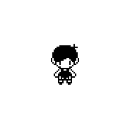II. Read the passage and choose the correct word to fill each gap. Write your answer A, B, C or D in the space given on the right. (5 pts) PlantsPlants grow in almost __(1)__ part of the world. We see __(2)__ plants as flowers, grass, and trees nearly every day. Plants grow high on mountain-tops, far in the oceans, and in many deserts and __(3)__ regions.Without plants, there could be no life on earth. Man could not live without air or food, and so he couldn’t live without plants. The ox...
Đọc tiếp
II. Read the passage and choose the correct word to fill each gap.
Write your answer A, B, C or D in the space given on the right. (5 pts)
Plants
Plants grow in almost __(1)__ part of the world. We see __(2)__ plants as flowers, grass, and trees nearly every day. Plants grow high on mountain-tops, far in the oceans, and in many deserts and __(3)__ regions.
Without plants, there could be no life on earth. Man could not live without air or food, and so he couldn’t live without plants. The oxygen in the air we breathe comes from plants. The food we eat also comes from plants or from animals that eat plants. We build houses and make many useful __(4)__ from lumber cut from trees. Much of our clothing is made __(5)__ the fibers of the cotton plant.
Scientists believe there are more than 350000 species of plants, but no one knows for __(6)__. Some of the smallest plants, called diatoms, can be seen only with a __(7)__. A drop of water may hold as many as 500 diatoms. The largest living things are the giant sequoia trees of California. Some of them stand more than 290 feet high and measure over 30 feet wide
Scientists __(8)__ all living things into two main groups – plants and animals. It is usually easy to tell the two __(9)__. Almost all kinds of plants stay in one place, but nearly all species of animals move about under their own power. Most plants make their own food from air, sunlight, and water. Animals cannot make their own food. The basic units of all life, called cells, are also different in plants and animals. Most plants have thick walls that __(10)__ a material called cellulose. Animal cells do not have this material.
1. A. all B. each C. every D. total __________
2. A. these B. those C. all D. such __________
3. A. polar B. polarized C. poled D. pole __________
4. A. products B. activities C. games D. plays __________
5. A. in B. up C. by D. from __________
6. A. certainty B. guarantee C. sure D. certainly __________
7. A. telescope B. periscope C. stethoscope D. microscope __________
8. A. part B. separate C. divide D. sort __________
9. A. difference B. apart C. distinctly D. separately __________
10. A. contain B. maintain C. stock D. incorporate __________


























